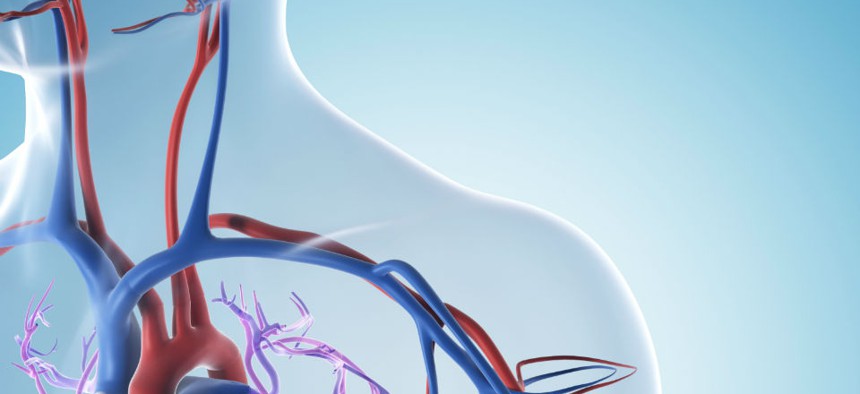Get Ready to Pay for Things With Your Veins

Sebastian Kaulitzki/Shutterstock.com
Fingerprint scanners are so iPhone 5S. Up next: the geometry of the veins in your hands.
Fingerprint scanners like those on the latest iPhones could soon give way to another biometric identifier: The geometry of the veins in your hands.
Hackers in the Chaos Computer Club last year fooled the Apple TouchID, which unlocks the iPhone 5S when presented with a familiar finger, by creating a copy of fingerprint residue. Fingerprints, the hackers wrote in a blog post, are a terrible way to secure your information: You leave them everywhere when you touch things, and it’s (relatively) easy to create fakes that fool the current scanner technology.
But if you’re still looking to replace passwords with biometric scans, there’s still hope. We now have an increasing number of scanners that identify you by the pattern of veins in your hand instead.
Vein geometry is just as unique as irises and fingerprints. The serpentine network of your vascular system is determined by many factors, including random influences in the womb. The result is a chaotic, singular print. Even twins have different vein structure in their hands. Vein patterns don’t change much as you age, so a scan of your palm can serve as biometric identification for the rest of your life.
(Image via Sebastian Kaulitzki/Shutterstock.com)
NEXT STORY: How to Generate Solar Power in the Dark





